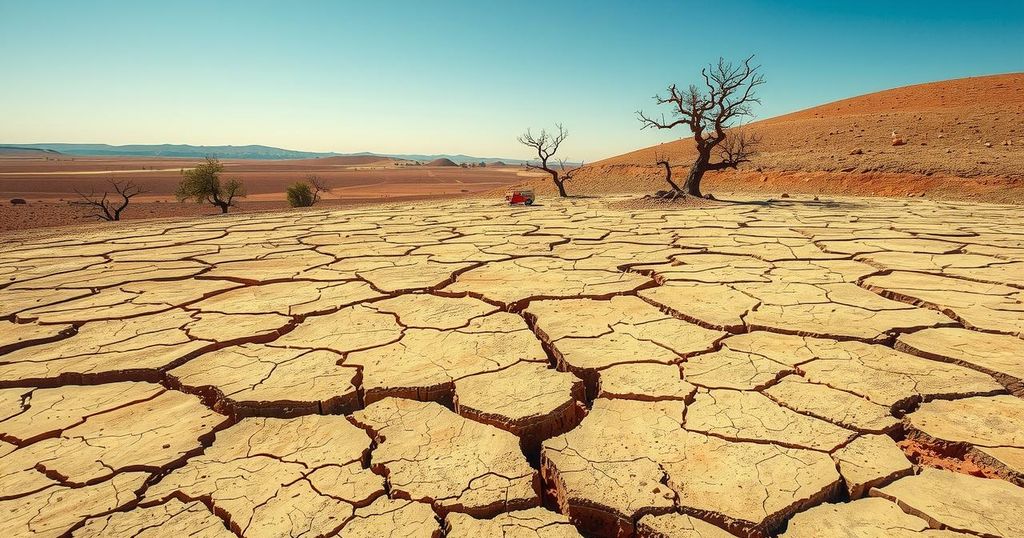Paraguay’s Economy Minister forecasts a tough 2025 due to drought affecting agriculture, leading to rising prices. The government emphasizes innovative policies for resource allocation in health, education, and security. Enhancing irrigation systems is a priority to maintain agricultural output. Discussions with Thailand’s minister focus on industrial cooperation, particularly in electric vehicles and food processing.
Paraguay’s Economy Minister Carlos Fernández has issued a forecast for a challenging 2025, attributed to drought conditions harming agricultural production and, consequently, raising prices. He emphasized the importance of innovative policies and ongoing evaluation of institutional work, as the government under President Santiago Peña seeks to allocate necessary resources for health, education, security, and social transfers while enhancing public expenditure.
The Agriculture Ministry has set a target to enhance irrigation systems to maintain consistent agricultural output. During a press conference following a meeting with Peña, Fernández recognized the broad impact of the drought on both large and medium enterprises, which will ultimately be reflected in product pricing. He stated, “Although it has not been as bad as in previous years, [the drought] has a high impact on production, affecting both large and medium producers and influencing consumer prices.”
Fernández further noted the necessity for fresh proposals geared towards enhancing consumer satisfaction in the economy, stressing that new policies must be established with renewed vigor. “We need to start with new strength and reevaluate our approaches as political, economic, and social conditions evolve,” he underscored. He indicated that the Ministry of Economy and Finance (MEF) would focus resources on key areas including health and education, acknowledging that public spending needs to improve to meet citizen demands.
Additionally, Agriculture and Livestock Minister Carlos Giménez revealed that the government aims to maximize irrigated land in Paraguay to prevent recurrent production lulls, stating, “We aim to eliminate plateau production and avoid reliance on imports during downtime.”
In a related development, Paraguayan officials engaged with Thailand’s Industry Minister, Akanat Promphan, to discuss strengthening industrial cooperation. Focus areas included investments in the automotive sector, particularly in electric vehicles, as well as highlighting the potential within the food sector to enhance processing industries and boost exports.
In summary, Paraguay faces economic challenges due to drought conditions impacting agricultural production and driving up prices. The government, under the guidance of Economy Minister Carlos Fernández and Agriculture and Livestock Minister Carlos Giménez, is committed to improving irrigation and reviewing policies to meet the evolving economic landscape. Enhancing cooperation with international partners is also a priority, with the aim of bolstering the country’s industrial and agricultural sectors.
Original Source: en.mercopress.com






